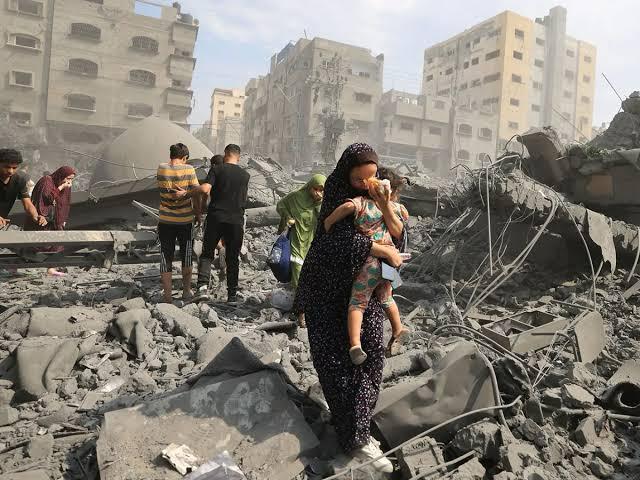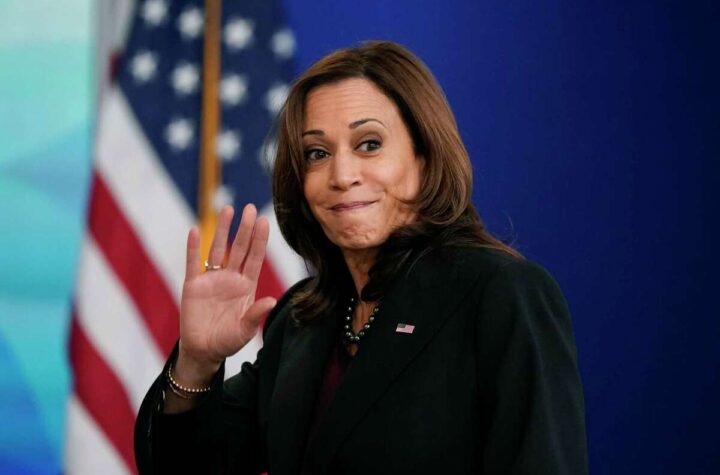The possible path to peace and justice in Palestine
Vidhika Gadia, Joseph Mathai and Sandeep Chachra
(The authors are social activists with a civil society organisation in India. The views expressed here are personal and do not necessarily reflect those of the organisation.)
Speaking at the Kolkata Literary Meet in January, Tanzanian born Nobel Laureate Abdulrazak Gunrah noted: “To say it [colonialism] is over is not to understand the causes or so much of the conflict that is going on in the world now — in Africa, in the Middle East [West Asia]. Many conflicts arose out of decisions made for the administrative convenience of the colonising powers.” To Gunrah’s list of regions we can add countries from Asia, Latin America and even Europe – as Afghanistan, countries in Latin America and Ukraine are battlegrounds where ever changing forms of colonialism are being replayed.
The Palestinian cause lies at the heart of the question of continued colonial and neo-colonial hegemony and a continued imperial intent by the West to dominate the world. It was under the 20th century colonial occupation that Britain sought to impose on Palestine the burden of resolving a crisis created in Europe, to which all countries in the Western world refused to host a solution.
Colonialism is thus not merely a thing of the past but continues to shape the world, its geopolitics, economy and culture for instance; and a continued colonial and neo-colonial hegemonic intent by the West to dominate the world. However, what we are seeing in the 21st century is colonial brutality in a new form, perhaps a degree muted than the one of the days before when there were scarcely any cameras, no television and social media. When the brutalised peoples could not, in the words of the Irish lawyer representing South Africa before the International Court of Justice, “broadcast their own destruction in real time in the desperate, so far vain hope that the world might do something”.
This was the situation before the 7th October 2023, the fateful day that saw the condemnable attack led by Hamas, that caused the death of 1,200 Israeli people. In the last four months since, Israel attacks have led to the loss of life to close to 26,000 Palestinians, majority of whom were women and children.
While the most authoritative and international court, The International Court of Justice, in announcing provisional measures through a majority vote ruled that accusation of genocide against Israel is credible, that Palestinians face an urgent catastrophic situation, asked Israel to halt all acts prohibited under the genocide convention, including killing of Palestinians, it remains to be seen how it will translate into practice. While the ruling is binding as both Israel and Palestine are signatories to the Genocide Convention, it remains to be seen how it translates in practice and leads to cessation of violence. Still, Israel and its supporters will see mounted pressure to end the war and the violence. The question that will arise the day after peace is declared, and we hope and it is sooner rather than later, is what will be the fate of the Palestinian nation and its people.
Lasting peace can only be built on the foundations of justice. We must, however, also recognise that the challenges to building peace for Palestine are immense, as there are sharp contradictions, and a thoroughly discredited middle path.
Many amongst the Israel establishment have called for an extension of what happened in 1948, which was the original “Nakba” or “catastrophe”! Adding to this is the very real danger is that it will go on towards the creation of a “Greater Israel”. Already, there is pressure on the neighbouring countries, especially Egypt, to accept as refugees the people driven out of Gaza, and in the West Bank, Jewish settlers continue eating into Palestinian territories, driving Palestinians from their homes and lands. Israel has accomplished this in the face of countless UN Resolutions because of the unremitting support it has received and continues to receive from the West and especially the US. Even as late as 18 January 2024, Israeli Prime Minister Benjamin Netanyahu had stated that, “With an accord or without an accord, Israel must have security control over the entire territory West of the Jordan River. That’s a necessary condition. It clashes with the principle of sovereignty but what can you do.”
On the other hand, we should recognise that Israel as a country also faces threat. Thirty four countries do not recognise Israel’s right to exist. There are powerful forces within Palestine that seek the end of Israel. The Covenant of Hamas issued in 1988 and revised in 2017 calls for: “The complete destruction of Israel as an essential condition for the liberation of Palestine and the establishment of a theocratic state based on Islamic law (Sharia).”
Finally, the ‘two-state’ solution has been emptied of all meaning as despite the West’s articulation of this viewpoint, it has done nothing to stop Israel from its various violations of the territorial, economic and political sovereignty of Palestine. It appears the US and much of the Global North are comfortable with a two-state solution where Palestine is reduced into permanent vassalage to Israel.
We need to recognise that justice needs to be within the realm of what is possible and attainable. Thus, while there is a great need to remain educated by history, we cannot let it rule the direction for a solution. We need to recognise that the unprecedented rise of people’s protests across the globe calling for a ceasefire in Gaza and the move by South Africa, supported by many countries of the Global South to petition the ICJ to stop genocide is a powerfully profound message in the 21st Century for a new world order, decolonised and rooted in love, hope and justice.
Imposing peace and a complete ceasefire on all parties is a task we can only entrust to the United Nations, even though it is great need for reform itself. Despite the UN’s past failures, we need to recognise how its actions in the past and recently have been hindered by the West. The Global South, with its history of anti-colonialism together with enlightened countries of the Global North, can pressure the UN peace-making and peacekeeping processes to ensure they have meaning and are effective.
Thus, the mandate to a possible UN Peacekeeping Force would be to ensure a complete ceasefire by all parties. This would include preventing any further attacks on Israel by Hamas or other States or non-state actors in the region. For the peace to be just and lasting, the mandate should also assist in the transition of Palestinian territories from the de facto status of being occupied to being truly sovereign – in terms of territory, polity and economy.
The definition of territorial sovereignty is that the respective State alone is entitled to exercise jurisdiction, primarily by subjecting the objects and the persons within its territory to domestic legislation and enforcing these rules. Moreover, the State is entitled to manage access to and egress from its territory. Territorial sovereignty protects a State against any kind of interference by other States. In the context of Palestine, this means that entry and exit from the Gaza Strip must not be impeded by Israel but managed by the Palestinian State itself. Maritime territory must be respected. Free movement within the West Bank must also be guaranteed. For this, the expansion of Israeli settlements in the West Bank must cease, and the settlers that are illegally present in areas of the West Bank must be made to relinquish the territory to Palestinians. This also implies making, implementation, and enforcement must be in the hands of Palestinians.
Tied closely to territorial sovereignty is political sovereignty. This means that the sovereign power of the State of Palestine must rest with the Palestinian people and no one else. In the current context, this would mean that areas such as the West Bank must not be under the influence of Israel, and the democratic outcomes of elections must be upheld. Elections must be free and fair, and their validity respected. The Palestinian State must not come under repeated threats and invasions, and its people must be accorded full rights under international law.
Further, Israel must not be allowed to punish Palestinian citizens with impunity, and all forms of brutality and territory seizing must end. The Palestinian State must also be made a full member of the UN, as opposed to the non-member observer status it currently holds. This, along with full membership in other global organisations, would aid in legitimising the nationhood of the Palestinian people and ensure equality in the truest sense of the word. The mandate of the proposed UN Peacekeeping Force would also include ensuring that all recognise the reality of the Israel nation, and that the security of its citizens is respected within the region.
The third aspect of sovereignty is that of economic sovereignty. This is defined as the ability of the State to impose the rules of appropriation, exchange, and use of resources. The Palestinians themselves must be in control of their economy, with complete control over any current and future resources. This includes deciding on its currency, economic and development policies, industry, and other economic matters, not only in its territory but also with the power to join economic leagues, cooperative efforts, and institutions. Any developmental gains or profits made from labour or resources must also be controlled by the State and its people, not by any external government.
Precedents exist for transitional governments and mandates by the UN which support the formation of such an arrangement in Palestine. In the past too, peacekeeping missions have included UN Transitional Administrations, and in the case of Palestine, peace and justice could be best be ensured UN mandate.
The way forward for lasting peace must not only look towards enforcing a ceasefire and setting up a functioning Palestinian nation but also account for justice, mutual respect, and cooperation between the stakeholders. The transitional administration that is needed must create systems and functions that support the implementation of justice for suffering and allow Palestinians to live dignified lives as equal citizens of the world. This is necessary not only to ensure that another Nakba does not take place but also that the State of Israel can continue in security. We must look towards building two countries that exist in peace and cooperation, where respect is shown towards both parties and move towards the possibility of an economic and political confederation in the future.
With a resurgent Global South, and the global people’s movement for Ceasefire in Gaza, we can hope that these energies can push the United Nations to help us move to the day that is still awaited – where there is peace and justice in Palestine, and West Asia.











More Stories
Zelensky calls on the Prime Minister to assist in lifting weapon restrictions in Ukraine
Business Rankers to present 2nd Edition of “India MSME Week-2024” in Jaipur
Adopting Digital Transformation in Sustainability Reporting with ESRS Set 1 XBRL Taxonomy